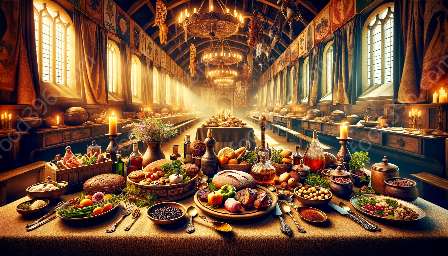The medieval period was a time of great change and development in the world of food, health, and medicine. In this article, we will explore the significant role of food in medieval health and medicine, taking a closer look at the history of medieval cuisine and its impact on overall well-being. Delve into the fascinating world of medieval culinary traditions and their connection to the practice of medicine during this era.
The History of Medieval Cuisine
Medieval cuisine was shaped by a combination of factors including geography, social class, religious beliefs, and technological advancements. The diet of an individual during the medieval period was greatly influenced by their social standing and access to certain ingredients. The availability of food varied widely between different regions, impacting the types of dishes that were commonly prepared and consumed during this time.
The cuisine of the medieval period comprised a diverse range of ingredients including grains, meats, dairy, fruits, and vegetables. The influence of trade and exploration introduced new ingredients and cooking techniques to Europe, leading to an evolution in medieval culinary practices. Spices, herbs, and exotic foods from distant lands became coveted commodities, sparking a culinary revolution and expanding the range of flavors and aromas used in medieval cooking.
The Significance of Food in Medieval Health
Food played a crucial role in maintaining health and well-being during the medieval era. The prevailing belief was that the consumption of certain foods and drinks directly influenced the balance of bodily humors, a fundamental principle in medieval medicine. The concept of humoral theory, based on the four humors - blood, phlegm, black bile, and yellow bile, guided the dietary practices and medical treatment of individuals during this time.
Medieval medical texts and treatises often prescribed specific diets and food combinations as a means of restoring the balance of humors within the body. It was believed that an imbalance in humors could lead to various illnesses and diseases, and the consumption of appropriate foods was considered crucial in restoring equilibrium and promoting overall health.
Culinary Practices and Medical Beliefs
The interplay between culinary practices and medical beliefs was evident in the preparation and consumption of food during the medieval period. Certain foods were classified as hot, cold, moist, or dry based on their perceived effects on the body, and these classifications were used to determine their suitability for consumption by individuals with specific medical conditions.
For instance, individuals suffering from a

